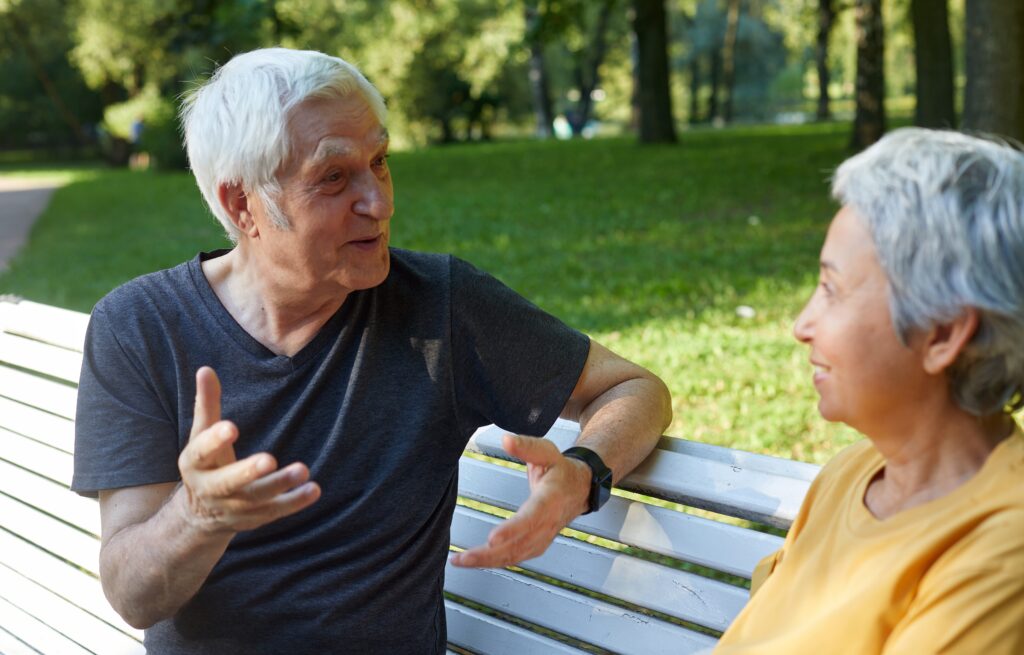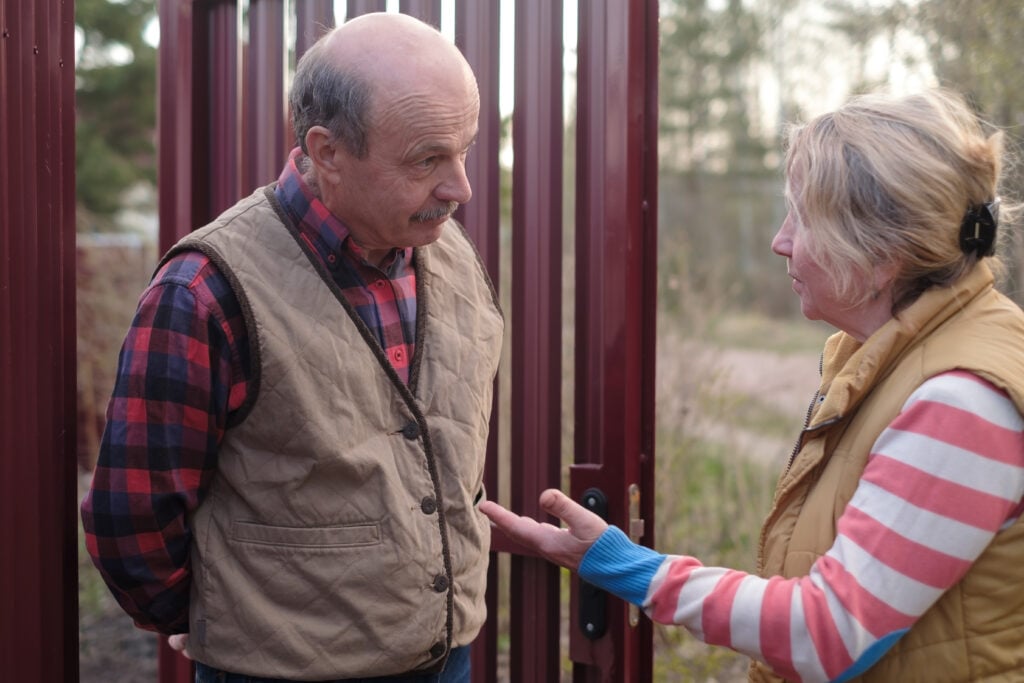What you’ve learned the hard way could be the gift that changes everything.

You’ve lived through things your grandkids can’t even imagine. Wars, heartbreaks, comebacks, mistakes you swore you’d never repeat—those life lessons didn’t come cheap. The problem is, wisdom doesn’t automatically transfer to the next generation just because you hope it will. It has to be shared, spoken, written down, or woven into stories they’ll actually remember. So many elders stay silent, assuming no one wants to hear what they’ve learned. But that’s not true.
Your experiences hold value that no textbook or podcast ever could. The trick is knowing how to pass it on in a way that sticks. You don’t need to lecture or preach—just be real, open, and intentional. The world your kids and grandkids are inheriting is complicated, and they need your grounded perspective more than they know. If you want your legacy to be more than photos and keepsakes, your wisdom is the best gift you can leave.
1. If you don’t speak your truth, someone else will speak it for you.

Staying silent might feel easier in the moment, but it rarely leads to peace in the long run. When you don’t share your story or values, people tend to fill in the blanks with assumptions—or worse, forget them entirely. Your truth doesn’t have to be perfect or polished; it just has to be real. Whether it’s a mistake you learned from or a core belief that shaped your life, putting it into words matters. Don’t wait for a perfect moment—it may never come.
Speak up while you’re still around to offer the context, the heart behind the story, and the lessons no one else can deliver like you can, says former professional baseball player Mike Robbins on his website. People often regret what they never said more than what they did. Make sure the narrative of your life is told by the person who lived it—because you’re the only one who truly can.
2. Money can’t buy happiness, but poor choices can cost you peace.

You don’t need to be rich to be content, but the way you handle money can either make life smoother or way more stressful than it needs to be. Most of us learn that the hard way—buying stuff to feel better, falling into debt, or chasing status instead of peace. Over time, it becomes crystal clear that financial decisions ripple out into relationships, health, and even self-respect.
Teaching younger generations that money isn’t the enemy—but impulsiveness and comparison often are—is a gift that could change their lives. It’s not about hoarding cash or avoiding all fun. It’s about knowing that real freedom comes from living within your means and aligning your spending with your values, states author Joshua Becker on his site Becoming Minimalist. Remind them that money is a tool, not a trophy. The sooner they learn that, the better off they’ll be—in more ways than one.
3. Kindness will take you further in life than ego ever will.

You might win a few battles by being the loudest, toughest, or smartest in the room, but it’s kindness that builds bridges, opens doors, and earns lasting respect. Over a lifetime, you start to realize how many relationships could have been saved or strengthened with just a little more grace and a little less pride.
Being kind doesn’t mean being a pushover. It means choosing empathy over ego and remembering that everyone’s fighting a battle you can’t see. This truth becomes more powerful with age because you’ve seen what happens when people double down on anger or stubbornness—they usually end up alone or bitter. Teaching others that kindness is strength, not weakness, might just be the most valuable lesson of all, writes Camden Beal in an article for The State Press. In a world that often rewards cruelty or cynicism, being kind is a radical, lasting legacy. It changes lives—including your own.
4. Time is the only thing you never get back, so spend it wisely.

It’s easy to waste time when you think there’s plenty of it. But as the years go by, you realize how priceless each day really is. The people you love won’t be around forever. The chances you put off don’t always come back. You don’t need to live in fear of running out of time, but you do need to respect it. That means being intentional about how you spend your days, what you give your energy to, and who gets your attention, suggests Leo Babauta of Zen Habits.
Chores, distractions, and obligations will always be there—but the moments that matter won’t. Share this truth with the younger people in your life. Help them see that someday is not a guarantee. Encourage them to make memories, not just plans. It’s not about packing every minute with activity—it’s about knowing which moments are worth showing up for fully. That’s where life actually happens.
5. Your worth isn’t tied to your productivity.

This one takes decades to fully understand. In a world obsessed with doing, producing, and achieving, it’s easy to believe you only matter when you’re busy or successful. But the truth is, your value doesn’t go up or down based on how much you check off your to-do list. Rest is not laziness. Slowing down isn’t failure. You’re allowed to just be—to breathe, to reflect, to enjoy life without constantly proving your usefulness.
That mindset shift is life-changing, especially in later years when you may not work the way you used to. The earlier someone learns this, the less they’ll burn out chasing endless validation. Tell your loved ones it’s okay to pause. It’s okay to find joy in being, not just doing. The people who truly care about you never valued you for your hustle—they valued you for your heart.
6. Forgiveness is a gift you give yourself, not just the other person.

Holding on to resentment feels powerful at first—it’s a way to protect yourself, to stay in control. But over time, it becomes a weight you carry, often longer than the person who hurt you ever will. Forgiveness isn’t about letting someone off the hook. It’s about freeing yourself from the pain that keeps circling back.
As you age, you realize how much energy bitterness steals. You also see how flawed everyone is—including yourself—and that most people are just doing the best they can with what they’ve got. When you forgive, you get your peace back. You stop dragging the past into your present. It’s not easy, but it’s worth it. If you want to pass on real emotional strength, show the next generation how to let go without losing themselves in the process. That kind of healing is a legacy worth leaving.
7. Most things aren’t as serious as they feel in the moment.

When you’re in the thick of a hard situation, it can feel like the whole world is crashing down. But give it time, and you’ll look back realizing it wasn’t as big as it seemed. Perspective comes with age, and it’s one of the greatest gifts you can offer. Teach your grandkids and loved ones that panic rarely helps, and most “crises” fade faster than you’d think. Stress often blows things out of proportion, making minor bumps feel like major disasters. With a little space and a deep breath, so many problems shrink.
If they can learn to pause before reacting and trust that even the worst moments will pass, they’ll save themselves a ton of heartache. The truth is, very few things are worth losing sleep over. Keep your cool, keep your sense of humor, and remember that life usually smooths itself out.
8. The people you surround yourself with will shape who you become.

You can’t always control who crosses your path, but you can choose who you let stay. Over the years, you start to see how deeply influenced you are by the people closest to you—how they impact your habits, values, and sense of self. Toxic friendships or relationships slowly chip away at your peace. Supportive, uplifting people help you grow. It’s that simple.
Encourage future generations to be intentional about their inner circle. They don’t need to keep people around just because of shared history or guilt. Teach them to listen to how they feel after spending time with someone. Drained or energized? Inspired or small? That’s the clue. Your crew matters more than your crowd. Life’s too short to be surrounded by people who don’t want the best for you. Your energy is sacred—so is your influence.
9. It’s never too late to change your path or start over.

No one gets through life without making wrong turns. But the idea that you’re “too old” or “too far in” to make a shift is one of the most damaging lies out there. Reinvention isn’t just possible—it’s often necessary. Whether it’s a career, relationship, mindset, or daily habit, change can happen at any stage if you’re willing to lean into discomfort and push through fear.
The people who stay stuck aren’t lacking opportunity; they’re often lacking belief. Your story doesn’t have to end the way it started. Teach the next generation that pivots aren’t failures—they’re acts of courage. Remind them that nothing meaningful comes without risk, and it’s okay to start again as many times as it takes to feel like yourself again. You don’t owe anyone an explanation for wanting more or different. Life is long. Reinvent as needed.
10. Comparison will steal your joy faster than almost anything else.

It starts small—just a glance at what someone else has or does—and suddenly, your own life feels less shiny. But that feeling is a lie. What you see on the outside is rarely the full story. The happiest people you know could be hiding the deepest pain, and the most “successful” lives often come with struggles you’d never want to trade for.
Comparison convinces you that you’re behind, not good enough, or missing out. But it never brings peace—only pressure. If you want to protect your joy, stop measuring your life against someone else’s highlight reel. Tell your kids and grandkids that their path is their own, and it doesn’t have to look like anyone else’s. Fulfillment comes from alignment, not imitation. When you stop comparing, you start appreciating. That shift changes everything.
11. Saying no is one of the healthiest things you’ll ever learn to do.

You don’t need to explain, justify, or apologize for protecting your time, energy, or boundaries. So many people—especially earlier in life—say yes out of guilt, fear, or people-pleasing. Over time, that habit becomes exhausting. Learning to say no is one of the most freeing, confidence-building things you can do. It allows you to stay aligned with your values and show up more fully for the things that actually matter to you.
Let younger generations know it’s okay to disappoint others in the name of honoring themselves. No is a complete sentence. The sooner they get comfortable with that truth, the less likely they’ll end up resentful, overcommitted, or emotionally drained. You teach people how to treat you by what you accept. Saying no isn’t selfish—it’s essential.
12. Love is a choice you make every single day, not just a feeling.

Feelings come and go. Life throws curveballs, people change, and emotions shift with time. But real love—lasting love—is rooted in the daily decision to show up, support, forgive, and grow. That kind of love doesn’t just happen. It’s built moment by moment, word by word, act by act. You won’t always feel head-over-heels. You’ll have seasons where everything feels hard.
But if both people keep choosing each other, even when it’s inconvenient or unglamorous, that’s where the magic is. Remind the next generation that love isn’t passive—it’s active. It’s not something you fall into once. It’s something you build, nurture, and protect. That kind of love doesn’t just survive life’s ups and downs—it thrives because of them.
